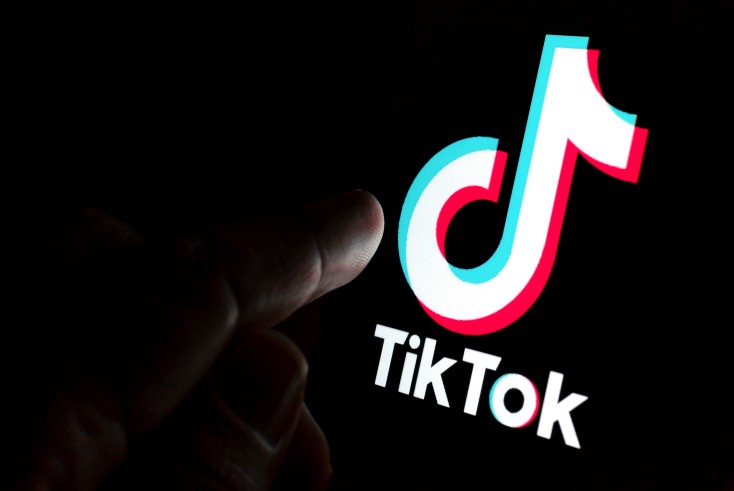How would a US TikTok ban impact the UK creator economy?

Last week, the US House of Representatives passed a bipartisan bill that would force TikTok developer ByteDance to divest its ownership of the app or else face a ban in the US within six months.
It now goes to the Senate, where it is expected to move more slowly. US president Joe Biden has said he would sign the bill into law if it’s passed.
TikTok had urged US users to call their representatives with pleas to vote against the legislation.
In a statement, a spokesperson said: “This legislation has a predetermined outcome: a total ban of TikTok in the US. The government is attempting to strip 170m Americans of their constitutional right to free expression.
“This will damage millions of businesses, deny artists an audience and destroy the livelihoods of countless creators across the country.”
Critics of the legislative push have emphasised the lack of any evidence of China tampering with TikTok’s algorithms and the potential infringement on free speech. They have also reasoned that any concerns about data privacy should be addressed through a broader bill that also targets competitor social media companies and third-party data brokers.
The UK is not currently considering formal legislation to ban TikTok, but some are beginning to apply pressure. Former Conservative leader Iain Duncan Smith told Politico that the UK “should follow America”, although a Downing Street spokesperson downplayed the chances of a ban coming to the fore.
Analysis: ‘Losing valuable engagement’
Regardless of whether the UK takes up similar legislation, a US ban could have a wide impact on the British creator economy.
Over the weekend, The Times published an article arguing that such legislative action would adversely affect small and medium-sized British businesses that rely on TikTok to reach new consumers.
Thomas Walters, founder and Europe CEO of influencer marketing agency Billion Dollar Boy, told The Media Leader that it was too early for creators and brands to panic.
“The bill still has to get through the Senate and, even if it gets signed into law, TikTok would have six months to sell,” he said. “A similar ban in the UK would also have a number of legal hurdles to pass before actually coming into effect.”
“Undoubtedly, though,” Walters continued, “the potential ban could impact UK creators — especially macro-influencers whose large following may extend beyond the UK to US audiences too. A ban could mean losing valuable engagement, which could impact on the scale of future brand deals.”
Brand considerations
However, according to Influencer Marketing Trade Body director-general Scott Guthrie, the majority of UK influencer campaigns target local audiences, so the direct impact of the US taking the “nuclear option”, as he called it, would be muted.
That does not mean global brands wouldn’t reconsider their budget allocations. James Hacking, founder of global social-first marketing agency Socially Powerful, expects advertisers to shift their attention to short-form video competitors like Instagram Reels and YouTube Shorts.
“The impact of this could mean fewer brand deals for creators on TikTok who haven’t diversified their audiences to other platforms or started creating content on different platforms,” he told The Media Leader.
That said, total spend on influencer marketing is unlikely to be affected, said Guthrie: “Budgets would shift [to Shorts and Reels] rather than be lost, in any event.”
Diversification is key
In preparation for a potential ban, Hacking believes that all creators — especially those regularly working with brands — must diversify their presence across other platforms.
However, he added: “If you’ve prioritised TikTok over everything else, suddenly trying to push audiences to other channels is not going to be easy and could be a rude awakening if brand deals end up vanishing overnight.”
Walters is more optimistic about creators’ capacity to diversify. “Creators are powerful brand tools precisely because they have a loyal audience who tune in specifically for their content,” he argued. “And so creators should feel reassured that the majority of their audiences — or at least the most engaged audiences — will follow them across to alternative platforms.”
Walters did, however, advise UK creators to keep up to date on developments regarding the potential US ban and monitor news of similar legislation in the UK or elsewhere to ensure they can remain agile.
That could include seeking out arrangements in more traditional marketing channels, such as TV and OOH, where Walters believes there are opportunities for social media influencers to be better-incorporated into brand deals.
“We may also see a rise in brands exploring partnerships with creators on other marketing channels […] to maintain partnerships with TikTok-first creators and show support for them during a potentially challenging time,” he suggested.
National security concerns
The efforts from US Congress to ban the app stem from national security concerns, including that China could potentially access swathes of behavioural data about users.
US politicians have also raised concerns that the Chinese government could covertly interfere with the app to influence Western public opinion by ordering a change in the algorithms that decide what videos are presented to users.
Founded in 2012, ByteDance is incorporated in the Cayman Islands and has its headquarters in Beijing.
ByteDance’s ownership structure is spread across global — including US-based — investors (60%), Chinese co-founders (20%) and employees (20%). The Chinese government, meanwhile, holds a 1% stake in ByteDance’s China-based subsidiary, which operates Douyin, China’s own TikTok-like app.
Since 2020, TikTok has been besieged by on-and-off threats of a ban or forced divestiture in the US.
To address concerns over China’s potential capacity to access Western user data, ByteDance has invested billions of dollars to create localised data centres in Texas and Ireland.
A Wall Street Journal report from January, however, found that its attempt at firewalling data was “porous” and that, while it had not appeared the Chinese government had made attempts to access US user data, such data was still sometimes being shared with TikTok’s Beijing-based parent.




